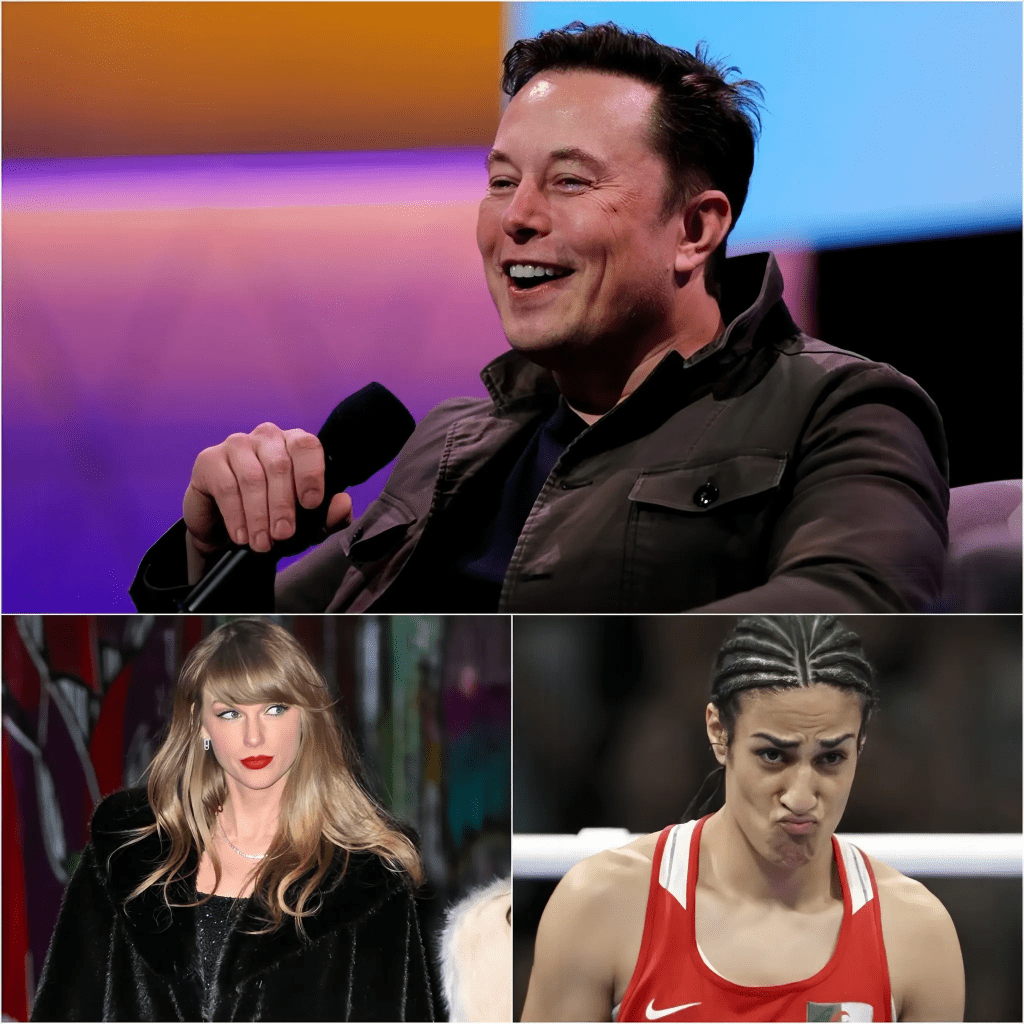Elon Musk Asserts His Influence: The Aftermath of Banning Taylor Swift’s X Account, the Loss of Over 7 Million Followers, and Imane Khelif’s Role in a Gender Controversy

In a dramatic and unexpected twist, tech mogul Elon Musk has once again captured global attention by taking decisive action to ban Taylor Swift’s X account, resulting in a massive loss of over 7 million followers and a significant financial setback estimated at approximately $100 million. Swift’s account was reportedly suspended following a politically charged endorsement that sparked an overwhelming backlash from both her fans and the wider social media community. The ban has ignited an intense debate regarding the influence of celebrities on digital platforms, the role of social media giants in controlling content, and the delicate balance between freedom of expression and corporate power.
The Political Firestorm Behind Swift’s Ban

Swift’s account was removed after she voiced support for a particular political candidate, a move that quickly fueled controversy among both her followers and her critics. The decision to publicly endorse a political figure, especially in such a polarized climate, led to a significant portion of her fan base expressing dissatisfaction, prompting widespread calls for the ban. However, this incident raises broader questions about the increasing role of social media platforms in shaping political discourse and how influential figures like Swift impact the conversations that unfold online.
The Impact on Imane Khelif and the Gender Controversy
While the Swift ban has taken center stage, the situation has also drawn attention to Imane Khelif, an athlete at the heart of a gender controversy tied to the Olympics. Khelif has been the subject of ongoing debate surrounding her gender identity, with some questioning her eligibility to compete in women’s events. Her involvement in this heated issue, paired with the fallout from Swift’s social media ban, has only intensified the public scrutiny surrounding her. Sources suggest that Khelif is facing potential repercussions as the International Olympic Committee (IOC) contemplates sanctions in light of the controversy. As a result, Khelif’s athletic career and future in the Olympic arena hang in the balance, with her role in the ongoing gender debate playing a key part in the unfolding drama.

Tensions Surrounding Social Media, Gender Identity, and Accountability
The combination of Taylor Swift’s social media ban and the scrutiny surrounding Imane Khelif’s gender controversy highlights the deepening tensions in the digital space, particularly when it comes to identity politics and gender issues. Critics have pointed out that these events serve as a reflection of a broader societal reckoning with how gender identity is perceived in both the media and sports industries. Additionally, they raise important questions about accountability—both for individuals in the public eye and for the platforms that amplify their voices.
The Role of Tech Moguls in Shaping Public Discourse
Musk’s decision to ban Swift’s account has sparked debates about the power and responsibility of tech giants in the digital age. As the CEO of X, Musk holds significant influence over what content is allowed to thrive on the platform, and his actions continue to stir discussions about censorship, freedom of speech, and the broader implications for public figures navigating controversial or sensitive topics. In an era where social media is a dominant force in shaping public opinion, Musk’s bold move emphasizes just how much control tech moguls can exercise over public discourse.
A Crossroads for Swift, Khelif, and the Digital Landscape
Both Taylor Swift and Imane Khelif find themselves at critical crossroads. Swift is facing the financial and reputational fallout of her ban, while Khelif contends with the possibility of losing her Olympic career amid the gender identity controversy. For both women, the consequences of their actions—whether in terms of political endorsements or gender debates—are being felt in an increasingly polarized digital and social environment. Their experiences serve as poignant reminders of the fragile balance between public figures, social media platforms, and the ever-evolving dynamics of online discourse.
As the saga continues to unfold, one thing is clear: the impact of tech giants and social media in shaping our modern world is profound, and the road ahead for both celebrities and influencers will require navigating complex and controversial terrain. Whether it’s dealing with backlash from political endorsements or facing the consequences of a gender controversy, the power of tech moguls to influence public opinion remains undeniable. Swift, Khelif, and many others will likely be forced to adapt to this rapidly changing digital landscape, where the stakes are higher than ever before.


